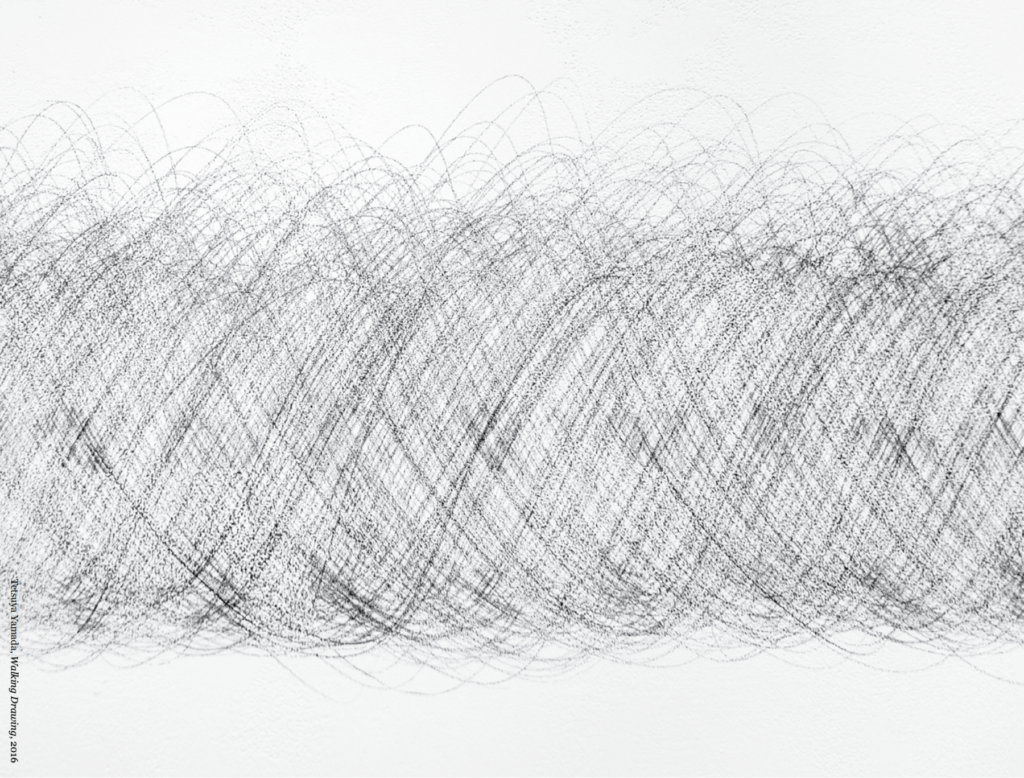Andy Delany and Lauren Flynn: To The Editor
Andy Delany and Lauren Flynn

Dear INREVIEW,
I am writing in response to the review of Lee Kit’s exhibition hold your breath, dance slowly in the Summer 2016 issue because my experience with the work was deeply positive and I feel Kari Mugo’s previous review falls short of offering readers entry points into Kit’s work. I enjoy reading articles that challenge my opinions, but was saddened to read one that closed off Kit’s work through dismissive and distancing judgement. In her essay Slow Criticism, Anya Ventura describes how, in an age of yelp and google reviews, “what the critic has to give is the fruits of looking laggardly, an attention that appears in increasingly lesser quantities today, a long and sustained commitment to coaxing meaning from mute objects.”
hold your breath, dance slowly is sad, definitely loving, but also overly sterile. As you first walk in, a video connects our skin to the plastic bins used throughout the show, mass-produced and banal storage spaces that become deeply personal as we begin to inhabit them. I am reminded that so many of my intimate experiences take place inside of and amidst anonymous objects made poorly and distantly. In the innermost room of the exhibition, another reminder: you feed yourself every day is transferred and smudged on the wall. These tactile, quiet gestures draw us closer to the realities of how we live and ask us to love these everyday objects and activities, to experience our bodies as bodies beyond and in resistance to the requirements put on them for economic production.
The artist uses NIVEA lotion for the subtle emotional qualities it can evoke, both lived and marketed. Nourishing, indulging, revitalizing, we rub it into our skin as a way to treat our surfaces, and as it begins to sink deeper it makes us feel softened, cared for, perhaps more permeable to the world. My friend Matt connects this to how Kit’s show functions. The longer you linger in the gallery space with the light, the Elvis song barely there, the soft blues and taupes, the deeper the emotional landscape begins to soak in, and the more it penetrates your own lived experience.
Kit’s installation isn’t an illustration of an intellectual concept, political or otherwise, but rather strikes some complex chords that language alone seems unable to hit, like how the smell of a house you used to live in can bring up a different kind of memory than a picture of it. The space is permeated by a certain sort of affective memory, deliberate yet general.
The previous review contained a quote from Anthony Yung, which describes the frustration a viewer can feel when faced with Kit’s mute objects. Mugo used this quote to dismiss Kit’s work as pointless even to his own friend, but to continue quoting the exhibition catalog where she left off, “The artist has given a lot of thought to not serving us concrete messages in what he tries to capture – the remembered traces of individual experience amid the mundane moments of life—as it is something that inherently escapes concrete form.”
Kindly,
Andy Delany and Lauren Flynn
